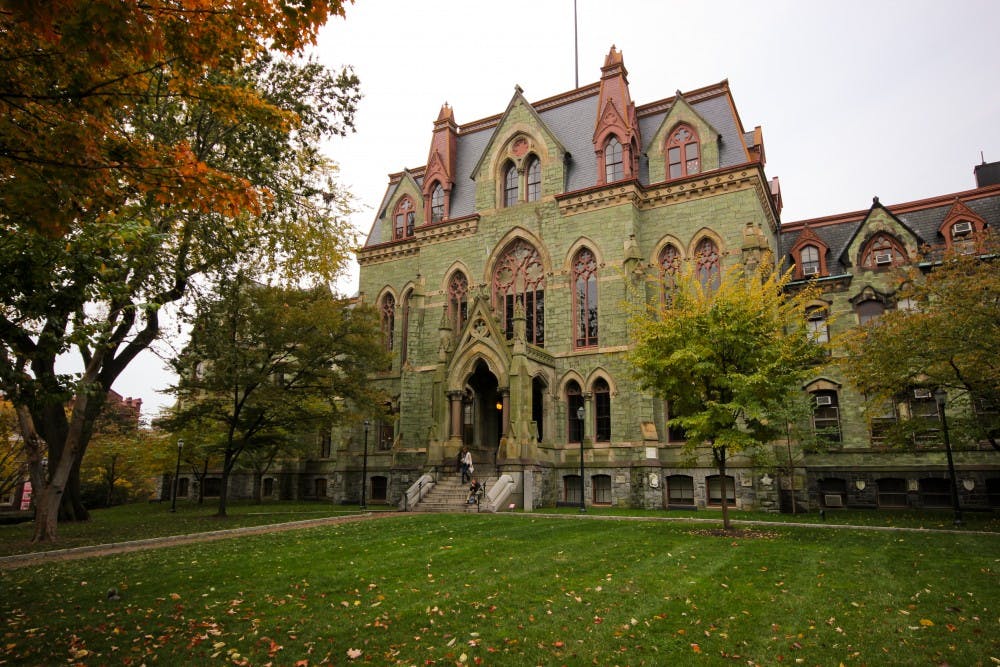
It all started with a single class, in the spring of 2013.
At first, professor Bethany Wiggin’s “Sustainability and Utopianism” class was scheduled to meet in the gloomy basement of the Chemistry building. But the group contained three members of the Philomathean Society, and the class was able to secure a move to the fourth floor of College Hall.
“There was something really special about that atmosphere,” Wiggin said.
After a semester of investigating the humanities side of sustainability, the students were discussing their final projects — and when they learned there weren’t any more environmental humanities classes to take, they wanted more.
So one student, 2016 Wharton graduate Leah Davidson, began work on a year-long independent study with Wiggin, and the two embarked on a journey to found the Penn Program in Environmental Humanities.
The program has blossomed since then — it now offers yearlong fellowships, has its own website, and has even been working to “rescue” data on climate change as the Trump era dawns.
By the fall of 2018, environmental humanities will be its own minor, offering classes ranging from environmental ethics to digital humanities and history of the environment. Its development tells a story about how student interest at Penn can shape academics at the highest level.

For Davidson, whose interest in art sparked the “artist-in-residence” aspect of the program, environmental humanities was a way to involve as many students in environmentalism as possible, even those without an interest in science.
“We realized that there was no real discipline at the University that incorporated environmentalism into other academic disciplines,” Davidson said. “From my own perspective, I was trying to figure out a way that the environment would apply to more students.”
The program allows students to shape individual projects according to their interests — in fact, it depends on students to push it forward. The website was built by a student, and the idea for the data refuge project was first suggested in a student meeting.
College senior Tabeen Hossain, a current fellow in the program, sees the overarching goal of the program — and, ultimately, the minor — as drawing in students with all kinds of interests and sparking concern for the environment, especially at a time when politics have climate change activists deeply concerned.
“I think the biggest thing is to involve people who otherwise wouldn’t be interested in environmentalism, people who are tangentially interested,” she said. “I think that really, if nothing else, it helps make environmentalism relevant in more people’s minds.”
The future environmental humanities minor isn’t the first to be born from a student’s passion. Penn’s minor in American Sign Language was started because 2012 College graduate Arielle Spellun saw a need for more awareness of the deaf community.
Penn is currently the only Ivy League school to offer an ASL minor. Similarly, the environmental humanities minor will be one-of-a-kind.
The program is about to begin what Wiggin calls a “cluster hire” in environmental humanities: bringing at least three tenure-track professors in to prepare for the minor’s debut. Wiggin hopes the timeline will be solidified next semester, and the minor will be available to students by the fall of 2018.
“We are going to have the biggest capacity to do environmental humanities on the most cutting-edge, amazing way, probably, in the world,” Wiggin said.
The Daily Pennsylvanian is an independent, student-run newspaper. Please consider making a donation to support the coverage that shapes the University. Your generosity ensures a future of strong journalism at Penn.
Donate







